Poor ecology, poor nutrition, the massive use of genetically modified foods, mutating viruses every year, and other adverse factors sometimes lead to the fact that even absolutely healthy parents can have a baby that requires special care and attention. Such children are not only grief for parents, but also a heavy financial burden. A good help for them is the help of the state, which provides benefits and benefits to parents of children with disabilities.
Who is considered a disabled child?
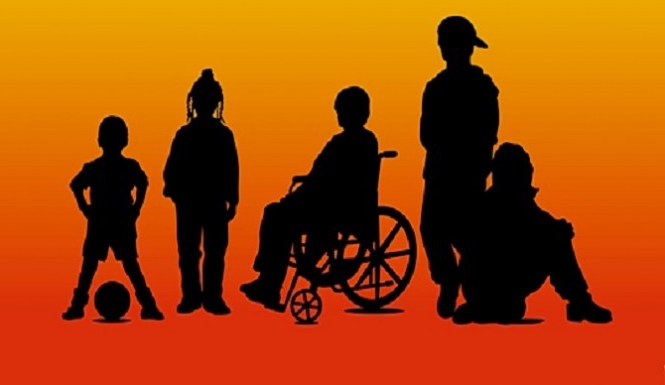
The very definition of disability is recorded in the Federal Law (Article 1) “On the Social Protection of Persons with Disabilities in the Russian Federation”. It means: a disabled person is a person who has persistent violations of any vital functions of the body that have arisen due to injuries, diseases, or from birth.
The activity of such a person is partially or completely limited, which consists in the inability to control their behavior, to self-service themselves, to move around without assistance, to navigate in space, to carry out independent labor activity or to learn. Persons falling into this category and under 18 years of age are defined as children with disabilities. A person can be recognized as disabled by appointment of a medical and social examination conducted by the relevant commission. Based on the degree of disorder, a disability group is determined.
The availability and procedure for providing benefits to parents of a disabled child does not depend on the group; it can affect only the amount of the cash payment due to it by law.
Unfortunately, today in Russia more than half a million disabled children are registered, raising them without the help of the state is quite difficult. That is why several types of allowances are provided for in the legislation of the Russian Federation: benefits for parents of children with disabilities at work, retirement, treatment, education, rehabilitation of children, and some others.
Relaxation for working parents
Of course, the maintenance and care of a sick child is always costly, and many mothers (not to mention fathers) just forced to go to work. To invite a nanny who knows how to handle such children is not only very expensive, but also practically unrealistic. In addition, not every parent is able to leave a child with a stranger who requires a special relationship with himself.
In connection with this Code of Labor Laws of Russia, certain special rights and labor benefits are provided for parents of children with disabilities. For example, the law expressly prohibits refusal of employment, justifying refusal by the presence of not quite healthy children, and this applies not only to mothers, but also to fathers, guardians or guardians of minors. When hiring, it is required to indicate the presence of children, their age, and it is not necessary to inform the employer about the presence of disability. Of course, in order to apply for benefits, working parents of a disabled child will have to provide documents confirming this fact, but this can be done after official registration.
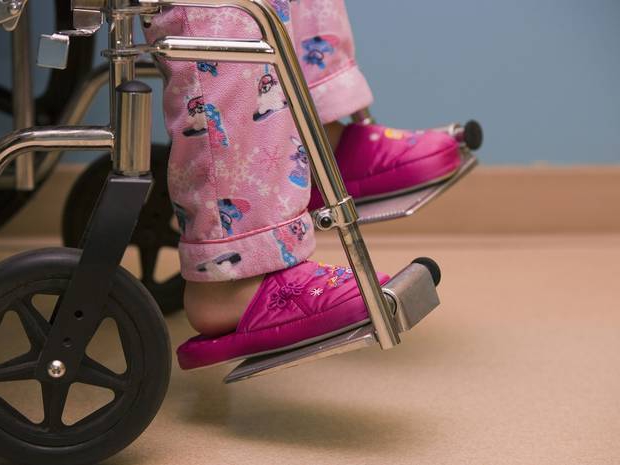
You should be aware that the law also prohibits the dismissal of employees containing disabled children (under 18) without the consent of the employee and on the initiative of the company, except in some cases:
- liquidation of the enterprise;
- in connection with the end of the contract (fixed-term employment contract);
- in case of malicious violation by the employee of labor discipline (such as regular lateness);
- on the basis of an order for disciplinary action (or, as the people say, "according to the article", say, for theft).
Also, such employees are prohibited from leaving for overtime work or sent on business trips without voluntary written consent.
The working parent has the right to additional leave “at his own expense” lasting fourteen calendar days, which can be used separately (at one time or in parts) or added to the next tariff. Also, one of the parents has the right to receive an additional four days off per month, and if both parents work, then these days can be divided between them at their request, and when only one is employed, they can be used alone. Payment for additional free days is made from the Social Insurance Fund.
To receive benefits for parents with a disabled child, you must provide the following documents:
- statement;
- a certificate confirming the presence of a disabled child in the family, as well as the fact that he is not on state security (for example, in a boarding school);
- a certificate stating that the other parent did not use the extra weekend at the place of work (if he took, then how much);
- if one of the parents works "for himself" (is an individual entrepreneur, notary, private bodyguard, etc.), then a certificate is required that he is a person who provides himself with work independently.
Attention! If the parent of a disabled child works part-time in two places, then he can get four extra paid days off at one and the other place of work.
In addition, employees with disabled children have the right to rely on part-time work (week) with remuneration according to the hours worked.
Retirement Features
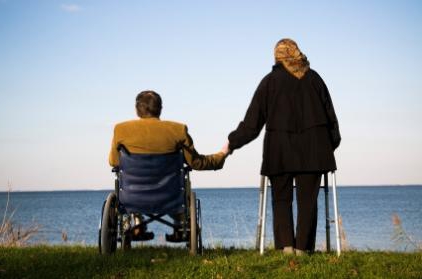
The next question that we will analyze: "Are there benefits for parents of children with disabilities upon retirement?" Of course. Mothers who raised such a child no less than before they reach the age of 8 have the right to credit this time to their working experience. In this case, the retirement age is reduced to 50 years, provided that there is a work experience of 15 years. Based on article No. 28 FZ-173 “On labor pensions in the Russian Federation”, such a pension is due to a father from the age of 55 and with an experience of 20 years. However, only one of the parents can use such a benefit.
Education and training of such children
The legislation of the Russian Federation also provides benefits for parents of children with disabilities associated with their socialization, education and training. Correctional educational units (classes, groups in kindergartens, etc.) are created for adolescents and children with developmental disabilities, where proper care, treatment, social adaptation and integration into society are provided. Children can be sent to such institutions only with the written consent of the parents (guardians) based on the conclusion of the medical and pedagogical commission.
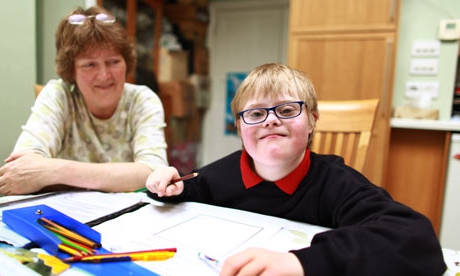
Benefits for parents with a disabled child are also provided when he can attend educational institutions with other children. For example, when a disabled child is admitted to kindergarten, parents are fully or partially (if the kindergarten is paid) exempt from service charges, and also have the right to priority enrollment in a preschool institution.
If a disabled child cannot be in a team, parents can organize training in non-governmental institutions or at home, and also have the right to demand compensation for the costs associated with such training.
Sanatorium, medical and orthopedic services

Benefits to parents of children with disabilities exist in the field of medicine. Obviously, such not-so-healthy guys often need very expensive drugs, so some of the benefits in this area are prescribed by law.According to Decree No. 890 of the Government of the Russian Federation, children with disabilities can receive the necessary medicines for free according to the prescription of their doctor. A free leave of prosthetic and orthopedic products, wheelchairs is also provided, and a discount of 70% is relied on purchased over the norm.
Children with disabilities have the right to receive a sanatorium voucher for themselves and one of the parents, while the accompanying person is required to receive a sick leave for the entire period of treatment of the child, including the time spent on the trip.
Use of transport privileges
The parents of the disabled child and the transport sector did not pass by the privileges. Free travel by all types of public urban and suburban transport, excluding taxis, is reserved for such children until they reach the age of 16. The same rights are enjoyed by the persons accompanying them.
In the period from 1.10 to 15.05, children with disabilities, as well as one of the parents, are entitled to a fifty percent discount on the cost of air, river, sea, rail and road intercity transportation (excluding the number of trips). But in the period from 16.05 to 30.09 such a right is granted only once (there and back). Also, annually relies on the free travel of the child and his person to treatment and back.
Housing Benefits
In order to slightly alleviate the burden of parents raising a disabled child, the state has provided measures to improve the living conditions of such families.
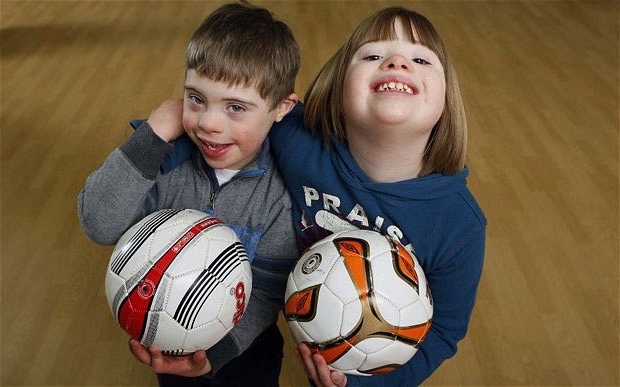
Listing the benefits to parents of children with disabilities regarding living conditions and payment for services, the following can be distinguished:
- Families with disabled children receive a right to a discount of at least 50% when paying for housing maintenance services, rent (state and municipal funds), subscription fees for using landlines and others;
- 50% discount on the purchase of fuel materials if there is no central heating in the house;
- the possibility of obtaining a plot of land for housing or gardening, gardening;
- the right to a separate room or an additional 10 square meters if a disabled child is diagnosed with a disease that is on the list enshrined in Decree No. 214 of the Government of the Russian Federation, and such living space cannot be considered excessive and must be paid in a one-time amount, taking into account all benefits ;
- priority right to improve housing conditions, especially for children suffering from severe forms of mental and chronic diseases.
Tax benefits
For parents raising one or more disabled children, there are also “discounts” in the field of taxation. Tax benefits for parents of a disabled child are established by the Law of the Russian Federation “On Personal Income Tax” and are provided on the basis of such documents:
- pension certificate;
- medical certificates confirming the need for ongoing care;
- solutions guardianship authorities;
- certificates of cohabitation issued by the housing authority.
The total income for the taxable period is reduced by an amount not exceeding for each full month during which the income is received, the triple minimum wage of the parent, which contains a disabled child living with him, requiring constant care. In this case, you must provide the appropriate certificate stating that the second parent did not use this benefit.
In accordance with paragraph 3 of Art. 210 of the Tax Code of the Russian Federation when calculating monthly wages, a tax deduction of 3,000 rubles can be applied. for each disabled child under the age of 18 years (student or student of a stationary form of education, graduate student, intern, intern - up to 24 years old), if he is recognized as a disabled person of I or II group.
If the child is brought up only by one of the parents, the deduction is provided in two times, and after the last marriage, it returns to its original value. Also, one of the parents can take advantage of a double tax deduction if the other refuses to receive it.
Social benefits
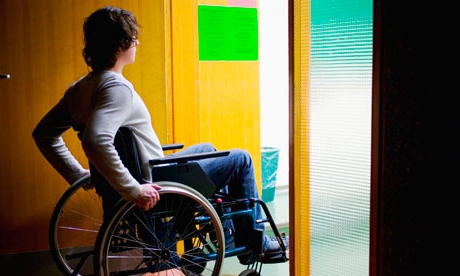
In addition to all of the above, there are still some benefits for parents raising a disabled child, mainly related to obtaining financial resources.
Thus, a able-bodied, but forced to not work in connection with caring for such a child parent, is entitled to monthly compensation, amounting to 60% of the minimum wage defined by law.
Until the age of 18, a disabled child is also assigned a monthly pension payment and allowances provided for by the law of the Russian Federation “On state pensions. "
Are there benefits on the contrary?
It is interesting to note the fact that benefits for children whose parents are disabled also exist, albeit in much smaller numbers. For example, children whose parents are disabled people of the first and second groups are entitled to a discount of up to 100% for paying for a kindergarten. And adolescents receiving higher or secondary special education in educational institutions of a contractual form of education are provided with a discount of 40% of the payment. Once a year, children of parents with disabilities can also qualify for a preferential health stay.
In conclusion, I want to note an important point. Many people do not distinguish between the concepts of “disabled child” and “disabled since childhood,” which leads to various misunderstandings. After reaching the age of 18, a disabled child loses his status and becomes simply a “young disabled person”. When passing a medical examination to determine the disability group, the reason will be recorded - "Disabled since childhood", as the disease that led to such consequences arose even before coming of age. So the benefits to the parents of a child with a childhood disability (and for our relatives we are always children) are no longer as extensive as those that were supposed before adulthood.







registration of a seniority pension?